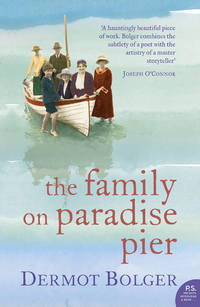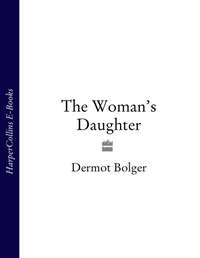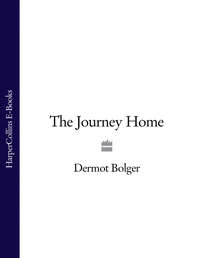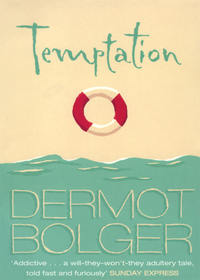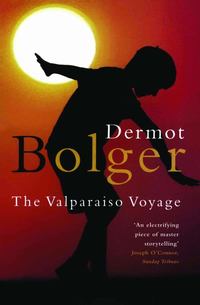
Полная версия
Father’s Music
‘Was McKenna mean?’ I asked Shane.
He snorted. ‘As mean as the back of his balls that only ever knew shite.’ He glanced back, apologetic for his language. It was thirty years since those events but they still rankled. We eyed each other openly.
‘How do I measure up to the others?’ I asked him.
‘There have been no others.’ Shane re-started the car and I believed him and beneath my show of toughness I felt better. Luke ignored our exchange. I wondered what Shane thought of me and was it contempt for his opinion or a bond between brothers which allowed Luke to display his mistress so openly. For the next two days I would have to remain invisible and I sensed that this journey was perhaps Luke’s only way to give some acknowledgement to my presence. Shane would never mention me, not even to his own wife. I suspected there were more dangerous secrets locked away in Shane’s head that would always stay there with a younger brother’s unquestioning loyalty.
We had reached the fringe of the city where back gardens of shabby houses petered out into overgrown fields. Children stood about on corners, with hoods over their heads.
‘What happened to McKenna?’ I asked.
‘He died years ago,’ Shane said. ‘The last time I saw him he was screaming like a madman up at our house when I was ten. He claimed Christy blinded two of his cattle because he’d cheated me out of a day’s pay.’
‘How do you mean blinded?’
‘The police said it was done with sticks,’ Shane replied. ‘They cleared us of involvement, but McKenna wouldn’t believe it. He was ranting, threatening our Ma who was trying to raise us without a penny the time Da had to go to England for work.’
The thought of such cruelty sickened me. Christy had a reputation for violence, but this was too extreme even for a twelve year old like him.
‘Did Christy do it?’ I asked.
‘Are you joking?’ Shane laughed, coming to a supermarket and turning left. ‘Poor Christy go up to the fields by himself in the dark and do the likes of that? He liked animals, Christy did, well dogs and pigeons anyway. Cows gave him the creeps. He was a city kid. He might have done McKenna himself, but cows? No way. That wouldn’t have been Christy’s style.’
We stopped at traffic lights. Horses stood motionless on a green, tied with lengths of rope. In the darkness beside them dozens of Christmas trees were propped up as if a forest had dropped from the sky. Two boys in over-sized duffel coats hunched down waiting for buyers. The lights changed.
‘It was a typical job by your man beside you,’ Shane said as he moved off. ‘Luke goaded the other kids about being chicken until they went up the fields while the three of us sat at home with alibis watching The Man from Uncle.’
Luke laughed and looked at me. ‘Don’t believe a word that fellow says,’ he said, almost absentmindedly. ‘It’s what Shane does best, wind people up.’
I laughed too, but the problem was that I did believe Shane or, at least, I didn’t know whether to believe him or not. True or false, two images stuck in my mind. One was of cows bellowing in agony as blood streamed down their faces and a circle of boys dropped their sticks and ran off with their bravado replaced by a realisation that they had been used. The second image was almost as chilling: an eleven year old calmly standing at his front door during the ad breaks on television where he would be seen by passing neighbours.
As if sensing my unease, Luke took my hand again. Suddenly I wanted to return to my life in London. I felt used as well, manipulated into thinking he needed me here. A suspicion came back even as I tried to dismiss it. Could Luke have known of Christy’s death all along, but had come to the hotel for sex anyway, not thinking that I could know? Might he have turned my knowledge to his advantage, sensing a need which he could exploit? Or did my own secretive nature make me suspect him? I wasn’t being fully honest with him about my reasons for agreeing to travel to Dublin. I knew nobody here. I would have to walk around alone or wait in some hotel bedroom until Luke found time to come. The unintended irony of the phrase made me feel cheap. I closed my eyes and the image of blinded cattle returned. I wondered again if Luke’s wife knew of my existence and, if she discovered I was here, what might be her measure of revenge?
We turned down a side road with a high wall, beyond which I could glimpse the roofs of unlit school buildings. A notice warned of guard dogs, but Shane turned through the gate and across a cattle grid to park with his headlights shining over a panoramic view of streets beyond the dark playing pitches. Luke seemed momentarily disorientated as Shane glanced back, awaiting some response.
‘Christy drove by here six months ago and almost crashed,’ Shane said.
‘I believe it,’ Luke said quietly. ‘It’s thirty years since I’ve seen that view.’
‘The pre-fab was levelled last year,’ Shane told him. ‘They finally built a permanent extension, out where the sheds used to be. Take a look.’
They both got out, caught up in memories I didn’t know, and walked into the glare of the headlights. I watched them bend their heads to talk. Their brother had been one of Dublin’s most notorious criminals. I hadn’t asked Luke who had killed him or what could happen next. As long as he kept me ignorant I had felt I wasn’t involved. Now that we were actually in Dublin I was scared. I didn’t know how much of this fear was bound up with Luke or how much stemmed from a terror of confronting ghosts I had spent half my life running from. Yet I knew those spectres had to be banished before I might begin to see some value in myself. It was because I regarded myself so cheaply that I never trusted anyone who reached out to me. Luke’s grief in the hotel was real because he had cried like I never could. He wouldn’t risk bringing me here unless his need was also genuine.
The two brothers cast out vast shadows in the headlights. I got out to see what they were examining. It was a flat expanse of floor tiles left behind after a pre-fabricated building had been demolished. I could decipher shapes of classrooms from the different styles of tiling. I sensed Luke visualising the building as it had once stood. He climbed up and followed the route of a vanished corridor, retracing his steps to the spot where Christy and he had first shared a desk. We had moved beyond the headlights so that we were now shadows in the dark. If I’d believe in spirits I would have said that Christy’s was there at that moment, along with the younger Luke and Shane, hungry for the lives ahead of them.
‘If Christy was older why were you in the same class?’ I asked, to break the atmosphere. Luke looked back, momentarily drawn into the present.
‘Holy communion,’ he explained. ‘Ma had to put him back a class when he was seven. She couldn’t afford the clothes that year.’
He walked to where the classroom wall had once stood and looked across at the lights from neighbouring streets. The main school stood in darkness to our right while there was ugly security fencing around the graceful old building on our left.
‘That was a fever convalescent hospital once,’ Shane said, motioning me to leave Luke alone. ‘When our folks came here first there were still old people in bath chairs coughing up blood under the trees. When TB died out the Christian Brothers opened a school instead. Not for corporation tenants like us, more for the private houses. But the place kept growing until one summer he was home from England, Da got a job sticking this prefab up to cope with the over-crowding.’
Luke had walked further away with his head bowed.
‘I can remember being given jam sambos and sent down to watch Da working,’ Shane said. ‘Ma kept badgering Da to have a word with the Brothers about us getting in here. Luke and Christy were steeped, free secondary education had just arrived. Before then it would have been the Tech or looking for whatever work we could find at fourteen.’
Luke turned. Although it was dark I sensed he’d been crying, or had come as close to tears as he ever would in public. ‘You stupid poor bastard, Christy,’ he said, almost to himself. He looked at Shane. ‘Somebody set him up, didn’t they?’
‘Somebody did,’ Shane agreed carefully, aware of my presence.
‘I don’t want to know who it was, you understand? Tell your son that. Half-arsed revenge won’t bring him back.’
‘Al never took any part …’
‘I know,’ Luke said. ‘Al’s a good kid, so this isn’t the time to start.’ He looked around. ‘I remember trying to drag Christy here every morning. Ma always said it was my job to keep him out of trouble.’
‘Christy liked trouble,’ Shane replied. Luke walked towards us and Shane put a hand on his shoulder. ‘You could have done nothing, Luke.’
‘Come on.’ Luke replied. ‘This place makes me feel old.’
‘You are old,’ Shane joked, but Luke just grunted and walked towards the car headlights, stepping on all the cracks now, deliberately walking through invisible walls. We followed.
‘I didn’t want to come,’ I told Shane. ‘I just felt I couldn’t refuse him.’
‘Everything will work out fine,’ Shane said, more to himself than me.
‘How long did Christy last here?’
‘Eighteen months of hassle till he got expelled and found a job on the milk floats,’ Shane said. ‘Luke was different. The Brothers hated him and he hated them. The year he got put away in Saint Raphael’s Industrial School they thought they’d seen the back of him, but he came back, put his head down and got first in the school in the Leaving Cert. I think he did it to spite them.’
Back in the car I knew the tour of the past was over. Luke sat beside Shane and they discussed practical arrangements, with Luke rechecking each detail of the funeral. There was something chilling in his tone, as if the business of burying his brother was like another shipment of tiles. I felt in the way. Mentally Luke was back among his family, a different person from the man I’d known in London or even the one who had cried in those school ruins moments before.
He had booked a single room for me in a hotel among a maze of tree-lined streets in Glasnevin. When we pulled up outside it I felt he was anxious to be gone. Shane took my case from the boot. The three of us stood there awkwardly. A handshake would have been ludicrous but I knew Luke wouldn’t display any token of affection. It was Shane who reached across to kiss my cheek. He smiled and opened the car door for Luke.
‘Don’t mind him,’ he said. ‘Your first time in Dublin, eh? You have a good time, you hear me?’
NINE
BUT ACTUALLY IT WASN’T the first time I’d ever been in Dublin. I remember, one night, watching a programme about the miracle of migration, how the tiniest of birds can instinctively plot a flight path across oceans and continents back to the nondescript cluster of trees where they had pecked their shells asunder. A camera hidden above the nest had shown the chicks with their beaks open, awaiting their mother’s return. Their luminous eyes had never ceased gazing up, scanning the constellations and logging the precise configuration of the Plough and Orion and Seven Sisters at that fixed point of their birth, so that no matter how far they scattered, they could perpetually track a course back home.
There had been no stars on the ceiling of that hotel near Dublin’s bus station when I was eleven years of age. Instead there had been tributaries and deltas of cracks, pencil-thin veins that clenched themselves up into shapes of staring eyes and demonic heads. I had lain alone beneath them, both longing for and dreading my mother’s return. There were footsteps on the ceiling above me, the creaking of a bed gathering meaning and pace. Part of the adjoining room jutted out into ours, a plywood alcove where water sporadically gushed from a tap to cloak the hiss of some man’s piss seeping into the sink. The muffled thump of a rock band echoed from the bowels of the shabby building. I had known that my mother was down there, in the dreary lounge overlooking the dangerous street which filled up with shouts, stampeding boots and the shrieks of girls every night at closing time. I was frightened she would meet someone; that perhaps, even now, the creaking bed above me contained her sweating body. I was frightened she would open the hotel door and disappear down those steps into the Dublin night. Most of all, I was scared our money would run out and there would be a scene with other guests staring at us and whispering.
The hotel room made me feel as poor as white trash. An ambulance hustled past with a flicker of blue light. My mother would have finished the three drinks she always allowed herself. I could see her sitting alone among the young couples, nursing the melted ice in her glass as she fretted against the nightly temptation to splash out on a fourth vodka. Soon she would be up. I closed my eyes but the motif of hair-line cracks kept watch above me, staring eyes waiting to catch mine. My stomach was sour with greasy food and anxiety because, after five days, this secret holiday had ceased to be an adventure.
It had seemed exciting when we planned it first, in whispered conversations in the back garden where Grandad Pete had lain down an ornate pond. Fish darted in and out between the perilously balanced rocks, red tails flitting for cover whenever I rippled the surface with my finger. I had never been allowed pets. Now I had spent each June twilight rocking back and forth on a tyre swing suspended from the cherry blossom tree beside the pond, watching in case our neighbour’s cat sprang down from the fence where he perched in uncanny stillness.
Mammy had been off work again since the start of May. ‘Resting’ was the term which Granny taught me to repeat to anyone who asked. For the first fortnight we had visited her in a nursing home with tropical plants and bright windows where people sat like statues. But she was home now. She was better, perpetually smiling and with buoyant words gushing from her. Every evening she began to come out into the garden to push me. I loved to hear her talk like that, after months of withdrawn silence, bubbling away about things I couldn’t follow and then breaking easily into laughter at some joke I told her from school. She had a new pet phrase which I heard repeated a dozen times every evening – ‘wouldn’t it be nice’. At first I think that, even for herself, those words were little more than vague aspirations, but gradually I had sensed a difference in her voice as she homed in on them again and again. ‘Wouldn’t it be nice if there was just you and me for a change? Wouldn’t it be nice if the pair of us visited Ireland?’
Every evening as she laughed and leaned against my shoulder to push me further into the blue air, I felt she was inserting a pause for me to fill in after the words. Even at eleven I knew she would never have the strength to decide any course of action by herself. ‘Why don’t we just go then?’ I said one twilight. She pushed me higher, almost as if buying herself time. I had looked behind as the tyre swung back. Her face was child-like, unable to conceal her delight. I felt suddenly older and protective of her. I kicked the ground and swung the tyre round to stare clandestinely at her, sister to sister. ‘Alright then, this is what we do,’ she had whispered confidentially, swinging the tyre back round to push me again, as though afraid we were being watched.
In the week that followed we never discussed our plans in the house, even when we were alone there. These secrets were confined to outside with the fish lurking beneath the stones, the branch creaking under the swaying tyre and early summer light succumbing to dark. We were conspirators. Our plans were real and yet, even up to the morning we left, they still had the feel of a child’s game. I had packed spare clothes into my school bag, cycled off as usual and even chained my bicycle in the school yard. It was my final week in Northwick Primary school. Class-mates chattered on their way to assembly. I walked back out of the school gates, resisting the urge to run to where my mother was waiting. It felt like being in a film as we hugged each other at the ticket desk and then raced along the platform at Harrow on the Hill station.
Конец ознакомительного фрагмента.
Текст предоставлен ООО «ЛитРес».
Прочитайте эту книгу целиком, купив полную легальную версию на ЛитРес.
Безопасно оплатить книгу можно банковской картой Visa, MasterCard, Maestro, со счета мобильного телефона, с платежного терминала, в салоне МТС или Связной, через PayPal, WebMoney, Яндекс.Деньги, QIWI Кошелек, бонусными картами или другим удобным Вам способом.


